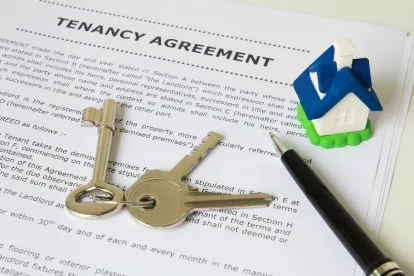On Friday, 19 June 2020, the government announced that it would be extending existing measures to protect tenants from eviction over summer. In summary, the new measures include:
-
Extending the moratorium on forfeiture from 30 June 2020 to 30 September 2020
-
Preventing landlords from exercising Commercial Rent Arrears Recovery (“CRAR”) unless they are owed 189 days of rent
-
Banning the use of statutory demands and winding up petitions where a company cannot pays its debts due to COVID-19 until 30 September 2020
-
Introducing a new, voluntary Code of Practice (the “Code”) for commercial landlords and tenants
Statutory Measures
The government has already introduced various measures to protect tenants from eviction during the COVID-19 pandemic, including a moratorium on forfeiture and a ban on the use of CRAR unless there are 90 days of unpaid rent. These measures were due to expire on 30 June 2020, however, in its announcement on Friday, the government confirmed that it intends to lay a statutory instrument to amend section 82 of the Coronavirus Act 2020 which will extend the moratorium on forfeiture until 30 September 2020, and lay secondary legislation to prevent landlords from exercising CRAR before 30 September 2020 unless they are owed 189 days of unpaid rent.
The government also intends to extend the proposed ban on the use of statutory demands and winding up petitions. The government is currently legislating to implement a ban on the use of statutory demands and winding up petitions through the Corporate Insolvency and Governance Bill (the “Bill”). The Bill proposes to prevent the presentation of winding up petitions against corporate occupiers based on statutory demands served during the “relevant period”. Following Friday’s announcement, an amendment to the Bill has been tabled which will extend the “relevant period” to 30 September 2020. The “relevant period” will now be the period starting on 1 March 2020 and ending on 30 September 2020.
The Code
In addition to the statutory measures outlined above, the government has published the Code of Practice for commercial property relationships during the COVID-19 pandemic. Endorsed by some of the industry’s leading representative bodies, the Code’s stated aim is to facilitate discussions between landlords and tenants by communicating best practice.
Compliance with the Code is not mandatory and its provisions are not legally enforceable, however, the Code is designed to apply to all commercial leases held by businesses which have been “seriously negatively impacted by the Covid-19 crisis” until 24 June 2021. It is clear that the Code seeks to encourage flexibility and open lines of communication between landlords and tenants, however, tenants still remain liable to pay rent in full, and those who are in a position to pay in full should do so. In circumstances where tenants are struggling to fully meet their rental commitments, the Code suggests that, where possible, landlords should support those tenants by, for example, deferring, waiving and/or reducing rent.
Tenants seeking concessions are encouraged to be transparent with their landlords as to why rent concessions are required and landlords should provide concessions where they reasonably can, taking into account their fiduciary duties and financial commitments.
The Code suggests that tenants should provide landlords with details of the extent to which their financial position has been impacted by the pandemic to justify the request. This may include providing details of: any closure period, the duration and extent of any restricted trading due to social distancing requirements, additional costs that have been incurred, any obligations to stakeholders, any government support received and how it has been used and the tenant’s previous track record in terms of compliance with lease terms. Landlords are encouraged to consider tenants’ requests on a case by case basis and provide reasoned responses.
The Code recognises the importance of keeping buildings insured and safely maintained, particularly during the current crisis, and that service and insurance charges under leases are not profit-making elements for the landlord. Consequently, the Code suggests that service charge and insurance rent should be paid in full, in accordance with the terms of the lease. Landlords are encouraged to reduce service charges where possible, however, it is acknowledged that there may be an increase in the provision of certain services (e.g. cleaning) as a result of the pandemic.
Practical Considerations
Recognising the unprecedented challenges facing the retail, hospitality and leisure sectors, the Code states that the government’s objective at this time is “to provide the right support to those in the chain of commercial property payments, from customers, to tenant businesses, to commercial landlords and lenders.” The Code therefore encourages all stakeholders to collectively shoulder the burden of the pandemic, however, perhaps because there is no ‘one-size fits all’ regime, it stops short of creating any hard and fast rules for achieving its stated objectives. As a result, the extent to which the Code has any impact will rely entirely on landlords and tenants taking heed of the guidance and working together to agree appropriate measures.
The extended moratorium on forfeiture and proposed statutory measures restricting statutory demands and winding up proceedings will provide tenants with further welcome short-term relief. However, it should be noted that there are currently no restrictions on landlords issuing money claims to recover outstanding sums, therefore it is possible that landlords facing their own financial pressures will turn to this enforcement method to recover rent arrears where efforts to agree terms with tenants fail.




 />i
/>i

